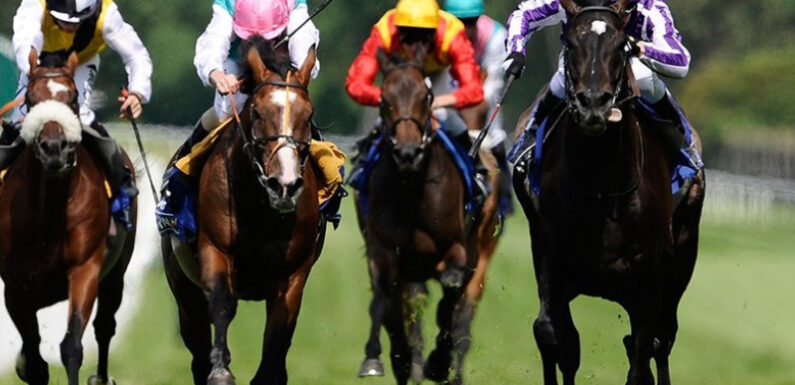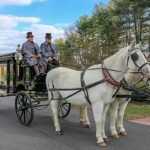
Horse racing terms: An incredible word finder for your reference
If you are a novice to horse racing and horse betting terminologies, and struggling to associate with the game, then you are not alone. Horse racing jargon can be quite intimidating for the enthusiasts who are already enthralled by the glitz and glam of the sports and eager to master it. Here is a complete guide for the terminologies used in and around the racecourses.
Horses racing terminologies that you must master
There are tons of words, terms, and phrases associated with the horse racing event. Many of the terms are acquired over the years, due to new regulations and by incorporation of terms from other regions. Hence, expert knowledge of horse racing terms is imperative for a comprehensive understanding of the game. From the fundamental elements such as raising and maintaining a horse to the slangs used on the racing grounds, horse racing is an event that may be all Greek for the novices. Here is a complete glossary for the horse racing terms typically used in the racing ground.
Horse racing word finder
Racing terms used for horses
- Age: Age is the age of horse in horse racing terminology.
- Broodmare: A broodmare is a female horse raised with the sole aim of producing a foal
- Backward: A horse that is neither fit nor fully developed
- Colt: A colt is a term used to describe horses younger than four years. Colt over 4 years of age is known as a horse if it is still in the race, or a stallion if kept in a stud farm.
- Dam: Mother of a horse
- Filly: A female horse younger than four years
- Foal: A horse younger than one year of age
- Gelding: Horses are often castrated to improve the temperament, this is known as Gelding.
- Length: Length is referred to as the length of the horse, typically measured from the nose to its tail.
- Maiden: Horses that have not won any race
- Mare: Female horse older than five years
- Non-runner: A horse withdrawn from a race that was supposed to participate
- Stallion: Stallion is a male horse used for breeding.
- Thoroughbred: It is a generic term used to describe horses trained to participate in a horse race
- Yearling: A horse between the age of one and two
Racing terms used for horse accessories
- Bit: A stainless steel bar that is placed in the horse’s mouth attached to the bridle
- Blinkers: A headgear that helps the horse to focus in a direction and blocks views for other sides
- Bridle: Tack fitted over a horse’s head used for holding bit and reins
- Cheek pieces: A headgear made of sheepskin placed on either side of a bridle that serves the same functionalities of blinkers.
- Gallop: It is a training strip used for training horses.
- Hood: A type of headgear that is placed over the horse’s head and covers the ears to eliminate the unwanted noises on a racing day.
- Noseband: Nosebands are the straps used to hold the bridle intact. This gear can also eliminate the possibilities of tongues obstructing the breathing.
- Tongue-tie: Straps used to tie the horse’s tongue so that it does not obstruct the horse’s breathing
- Visor: Visors are also a type of headgear that has small eyecups to prevent horse’s rear views to affect their concentration.
- Whip: Whips are instruments that keep the horses under control.
Racecourse terminologies
- Fences: Chase races involves obstacles called fences that may be classified into open-ditch, plain fence or water jump
- Furlong: A unit of measurement used in horse racing typically covering a length of 201 meters or one-eighth of a mile.
- Hurdles: Hurdles are small fences that require only a tiny jump. They are also referred to as flights.
- Paddock: Paddock or parade ring is where the horses paraded before the race begins
- Stalls: The horses begin their flat race from boxes known as stalls
- Stud: Studs are where horses are kept for breeding. You would find stallions in a stud farm.
- Yard: Typically referred to a stable, yard is also known as the trainers and their horses
Racing terms and phrases
- Abandoned: Status of a horse race discontinued or canceled mostly because of bad weather.
- All-weather: Refers to a synthetic racing turf suitable for all weather.
- Allowance: This is the deduction of weight a horse requires to carry mostly impacted by the age of horse or type of jockey.
- Betting ring: These are where bookmakers are placed on the course that is often close to running rails.
- Bloodstock: Term deals with racehorse breeding either at the sales or at stud farms.
- Boxed in: The situation in which a horse cannot run properly due to the proximity of other horses
- Brought down: A term used to describe the horse’s falling due to another horse’s influence
- Chase: Chase describes the horse race formats that involve fences.
- Dead-heat: when the judges are unable to find out the single winner at the finishing line, the prize is split between two or more horses.
- Draw: Starting position of horses in the starting stalls
- Hacked up: A phrase that describes the comfortable win of a horse
- Handicap: A race type in which horses carry various weights depending on the overall rating
- In running: Anything happening during the race
- Nap: The best bet that is likely to win
- National Hunt: Also referred to as jump racing, this is one of the two racing cards with the other being flat code.
- Neck: Neck is the measurement or the winning margin for a close race.
- On/Off the bridle: A term used to describe the horse is/is not performing well.
- Pacemaker: A horse that supports its stablemate to maintain the even tempo of the race
- Photo finish: A close finish that might require judges to go through photographs
- The race card: A detailed information regarding the schedule of the race and the horses running in it
- Undulating: An uneven terrain is referred to as Undulating




